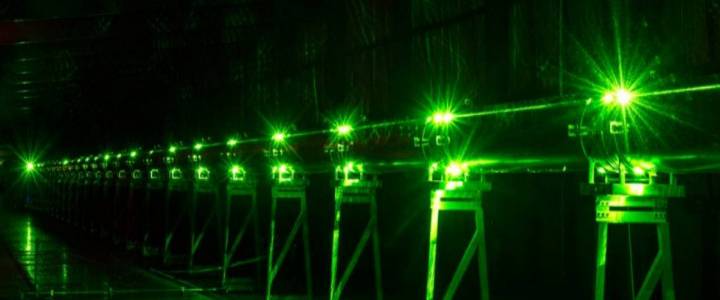
Physics Graduate Programs
Notice to Prospective Graduate Students
If you are interested in applying, you can do so here.
The general and subject GREs are no longer required for admission. Please consult the most recent catalog for the current official documentation. If you have any further questions regarding the department or any of the information below, email the physics department.
| Scholarship Opportunities | |
June Bacon-Bercey Scholarship in Atmospheric Sciences for Women
The June Bacon-Bercey Scholarship in Atmospheric Sciences for Women supports women students with a demonstrated interest in atmospheric sciences and intersections with meteorology. Originally offered between 1978 and 1990 and reestablished in 2021 through support from AGU’s community of donors, the family of June Bacon-Bercey, and AccuWeather, the scholarship recognizes outstanding accomplishments for a scientist at their career-stage. STRUCTURE AND CLARITY OF THE APPLICATION
The review committee will be instructed to rate the quality of the personal statement (taking into consideration the impact that receiving the scholarship will have on the applicant), CV, letters of recommendation, and provide an overall rating for the application. Reviewers will be instructed to rate the applicant's accomplishments, as demonstrated in the application materials, for a scientist at their career-stage. |
|
|
I’m excited to inform you that applications for the 2025 Student Internship Program
(SIP) are now open. Within the SIP portfolio there are a total of ten distinctively
unique internship programs representing a cross section of career paths across the
Naval Research Establishment (NRE), Naval Research & Development Establishment (NRDE),
and other supporting naval agencies and organizations. Please introduce this to students
in your orbit.
How to Apply?
Important Dates to Remember:
|
|
Master of Science Program
The Master of Science degree in Physics may be earned with thesis or independent study:
- With Thesis: The student’s course of study and thesis topic must be approved by the student’s advisory committee. A thesis consists of directed research, and a write-up of the research. An oral defense of the thesis is required. The thesis is an archival document published electronically and kept in the NMT Library.
- Without Thesis: The student’s course of study must be approved by the student’s advisory committee. The student’s committee may require additional coursework beyond that listed below. A student who elects to not write a thesis may or may not participate in research, but they typically write a paper on a topic selected with guidance by the advisory committee. Unlike a thesis, this paper is not archived electronically by the NMT Library.
General Requirements
In addition to the general master’s degree requirements, all students enrolled in the Master of Science degree in Physics must satisfy the following course requirements:
- All students must complete PHYS 501 (2) and 502 (2) in their first two semesters.
- PHYS 509 (3)
- PHYS 505 (3) or 521 (3)
- PHYS 579 (1),
- Graduate-Faculty seminar must be taken for the first four semesters. 6 credit hours chosen from PHYS 508 (3), PHYS 510 (3), PHYS 518 (3)
Doctor of Philosophy Programs
PhD in Physics - General Requirements
- In addition to the general doctoral degree requirements, the following course requirements apply to all curricula:
- All students must complete PHYS 501 (2) and 502 (2) in their first two semesters.
- PHYS 505 (3), 508 (3), 509 (3), 510 (3), 518 (3), and 521 (3). While the listed courses are the simplest route to achieving this credit, a student may petition their committee and the department chair either with proposed substitute course work or other prior experience that demonstrates equivalent competence in any of these areas. Further, New Mexico Tech students who took one of the listed courses as part of a prior degree program at Tech and passed it with a grade of B- or higher are not required to retake the course.
Preliminary Examination
All graduate candidates must pass a preliminary examination, within a timeline dependent upon their undergraduate preparation and the degree being sought.
Preliminary Examination Procedures (pdf)
PhD Candidacy
The main purpose of the candidacy examination is to evaluate the student's ability to complete dissertation research. The process of petitioning to PhD candidacy, and the logistics of the candidacy examination are described below.
PhD Candidacy Procedures (pdf)
Please consult the most recent catalog for the current official documentation. If you have any further questions regarding the department or any of the information below, email the physics department here: physics@nmt.edu
 DUE: January 17th, 2025 - March 27th, 2025
DUE: January 17th, 2025 - March 27th, 2025